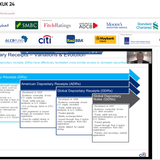From time to time the government allows payment of past due tax debts in instalments. The first such amnesty program was created in 2000, called Refis. Then came Paes in 2003, Paex in 2006 and Refis of the Crisis in 2009, the last with four phases in 2013-2014. All told, including special sectorial programs, there have been some 30 of these programs since 2000, according to the Federal Revenue Service (RFB), without counting similar arrangements by state and municipal governments.
The large majority of companies that adhere to these programs are later excluded, either by default or migration to a new Refis, suggesting an opportunistic strategy of rolling over tax debts.
Worse still, there is a select group of customary debtors that wind up gaining undue benefits in comparison with their competitors that pay taxes correctly. According to a study by the RFB, of the 9.4 thousand companies with annual gross revenue greater than BRL150mn, about 2 thousand have participated in three or more programs, and these large companies account for 68% of the total tax debts.
Occasional programs for payment of tax debts in instalments occur in the main countries, but only in exceptional situations. The aim is to smooth out the economic cycle and unemployment. In some cases, this can be positive to social welfare and to tax receipts, by enabling firms facing momentary difficulties to survive. But there are several reasons to believe that the Brazilian programs have failed to meet their objectives.
Outstanding tax liabilities have been growing each year faster than inflation. Besides this, in 2016, Faber and da Silva showed in an article that the participation in payment of taxes by the companies that adhered to the programs was decreasing with time in comparison to those that never adhered to any of the programs.
Excessively generous and frequent programs wind up rewarding and stimulating default and also allow the survival of inefficient firms. In this respect, the authors noted greater resilience of net profit of companies not adhering to any program in comparison to adherents.
It’s hard to design an instalment payment program with positive return to society. To judge from the international experience, two important requirements are that the time frame for the payments not be very long and that the programs not be frequent. According to a study by the OECD, in the majority of member countries, the maximum time frame is 12 to 24 months, much shorter than the norm in Brazil, which is 60 to 180 months.
In some countries, unlike Brazil, no benefit is offered to repeated debtors, and in some cases guarantees are required for longer periods. Besides this, countries of the OECD have been trying to establish measures to assure compliance with the payment commitments.
The latest tax regularization program proposed initially by the government had merits, but did not advance. It did not stipulate reduction of fines and interest, instead only allowing the use of tax credits from loss carry-forwards. It also did not permit the debtor to migrate to a subsequent program and required regularity regarding other taxes to remain in the program.
The new proposal (Special Tax Regularization Program), which is more flexible, was disfigured by Congress. It was no accident that some called it the “default allowance”. The new bill of law expands the number of monthly instalments to 175 (before it was 120), specifies a large discount on fines and interest, expands the allowance for using tax loss carry-forwards and removes the provision that would prevent adherence of taxpayers already participating in other programs. This proposal, already approved by the joint congressional committee, denotes the country’s divorce from reality.
Despite the signs of economic recovery and a continued fiscal crisis, to not recommend new benefits to private companies that do not pay their taxes in a timely fashion is worrying. Moreover, the fiscal crisis is partly the result of careless distribution of benefits and privileges. The policy of repeated Refis versions punishes companies that pay their taxes regularly, to the benefit of those that do not.
A new Brazil requires a new policy and a new private sector, one where firms pay their obligations regularly.









